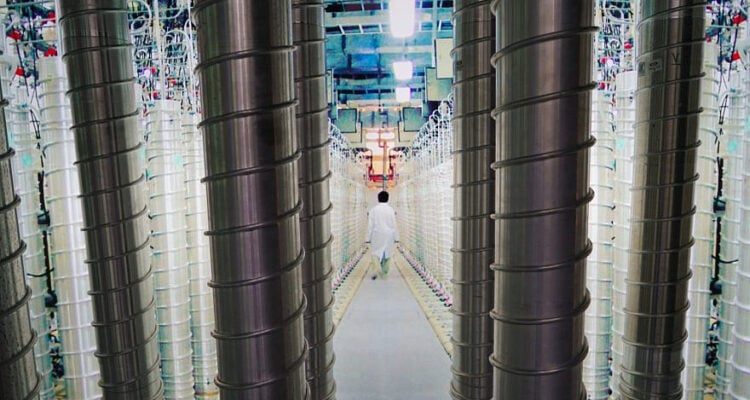The UN watchdog no longer has questions about highly enriched uranium particles at Fordow or man-made uranium at Marivan.
By JNS
Confidential reports from the International Atomic Energy Agency released this week show that the UN. watchdog has closed two investigations into Iranian nuclear sites.
The IAEA has decided to close the file on traces of man-made uranium at the undeclared Marivan site in Abadeh County, in the southern province of Fars. The Vienna-based intergovernmental organization “has no additional questions … and the matter is no longer outstanding at this stage” after receiving a “possible explanation” from Iran, according to the report.
Marivan is one of three undeclared sites where the IAEA said that traces of radioactive material were discovered, the other two being Varamin and Turquzabad.
The IAEA also closed the case at the underground Fordow facility after inspectors found uranium particles enriched to 83.7%.
According to the reports, the IAEA has re-installed a fraction of the monitoring equipment put in place under the terms of the 2015 Joint Comprehensive Plan of Action (JCPOA) nuclear deal and removed by the Iranian regime.
Iran’s estimated stockpile of enriched uranium has reached more than 23 times the limit set in the nuclear accord, according to the IAEA.
Tehran has significantly increased its enriched uranium stockpile to an estimated 4,744.5 kilograms (10,459 pounds) as of May 13.
The limit set in the JCPOA between Iran and the P5+1 (the five permanent members of the UN Security Council—China, France, Russia, United Kingdom, United States—plus Germany) together with the European Union was 202.8 kilograms (447 pounds).
According to the report, Iran is continuing to enrich uranium at rates far higher than the 3.67% allowed under the terms of the JCPOA, which was to sunset after 15 years.
The stockpile of uranium enriched to 20% is believed to have increased by 36.2 kg. since the last report in February, standing at 470.9 kg. The amount enriched up to 60% has increased by 26.6 kg. to 114.1 kg.—enough to make two bombs.
A level of 90% is required for a nuclear warhead on a conventional intercontinental ballistic missile.
Former U.S. President Donald Trump ended the American commitment to the JCPOA in 2018 in favor of imposing punishing sanctions on the regime in Tehran. Efforts to revive the pact have taken place over the past two years.
The quarterly reports are being released this week ahead of the regular meeting of the IAEA Board of Governors scheduled for next week. The Board of Governors’ membership includes 35 countries.





